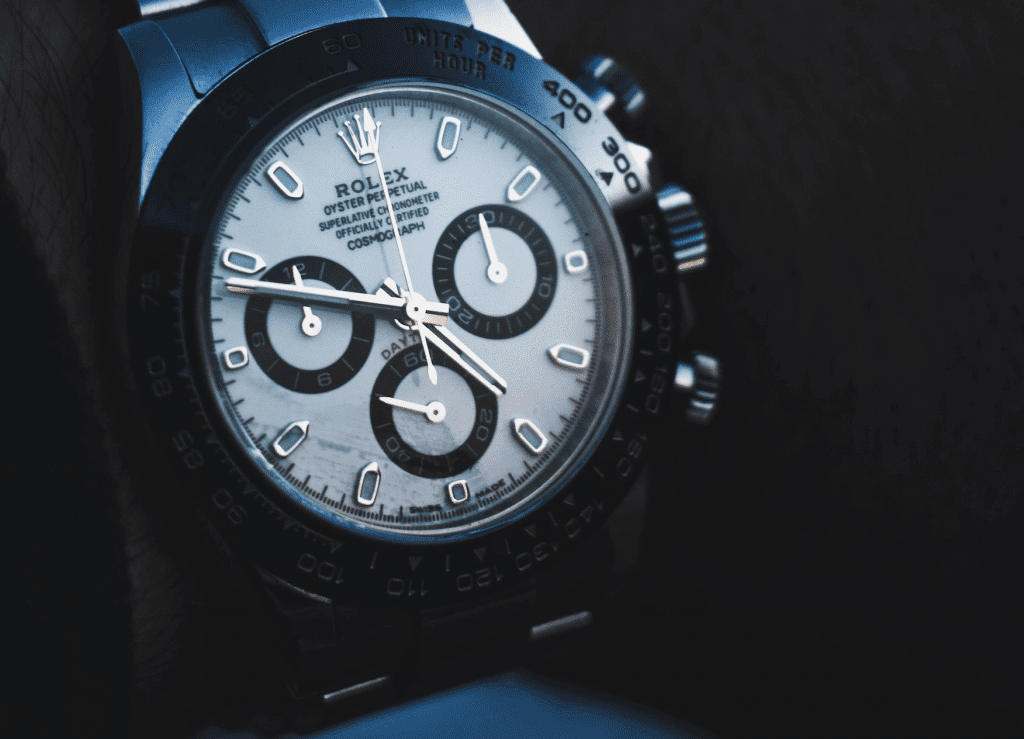A French regulator has levied a 91.6 million euro (just over $100 million) penalty on Rolex France SAS for blocking more than two dozen of its authorized retailers in France from offering up its watches online. In a decision on December 19, the Autorité de la Concurrence held that by using language in the selective distribution agreements that it enters into with distributors that restricts the conditions in which they can sell its watches, Rolex’s terms amount to an impermissible vertical restraint. As such, the market regulator found that the Swiss watchmaker has run afoul of antitrust law in France and the European Union more broadly. The Autorité revealed that its decision follows from referrals from the Paris-based trade association, Union de la Bijouterie Horlogerie, and Marseille-based retailer (and former Rolex retailer) Pellegrin & Fils, as well as dawn raids.
In its decision, the Autorité took specific issue with provisions in the selective distribution agreements that govern relations between Rolex and its authorized retailers that “prohibited the latter from selling the brand’s watches by mail order and via the Internet.” The competition watchdog noted that Rolex acknowledged the online sales ban in a letter to one retailer that confirmed that “under no circumstances can our Authorized Retailers, who are the only parties authorized to sell our products, do so via the Internet or by mail order.” Rolex further stated in the letter that “any sales via the Internet contravene the provisions of Article IV.3.b of the Selective Distribution Agreement signed by all our Authorized Retailers.”
The Autorité held that in light of its case law, as well as Articles 101 and 102 of the Treaty on the Functioning of the European Union (“TFEU”) and Articles L. 420-1 and L. 420-2 of the French Commercial Code, it considers “this type of clause to be inherently restrictive of competition.”
(French Commercial Code L. 420-1 prohibits “concerted practices, contracts, explicit or tacit agreements or coalitions between independent companies having as their object or effect the prevention, restriction or distortion of competition on the market, including in vertical agreements.” And French law largely mirrors EU competition law (namely, Article 101 of the TFEU) in generally banning vertical restraints that “distort the level playing field and cause harm to consumers and other businesses.Kramer Levin’s Marco Plankensteiner, Pauline Dessèvre and Mathilde Vergnaud note that this includes “direct or indirect price restrictions, such as resale price maintenance and tying, restrictions on territory and customers, such as exclusive customer or territory allocation, and restrictions on sourcing, such as non-compete obligations and single branding.”)
In reaching its decision, the Autorité shot down Rolex’s attempts to justify its ban on e-commerce sales, including that the ban “was intended to preserve its image and enable it to combat counterfeiting and off-network [or parallel import] sales.” While the Autorité said that it “does not dispute the legitimacy of these objectives,” it, nonetheless, found that Rolex prohibiting online sales is “not a proportionate measure.” Specifically, the Autorité asserted that Rolex’s main competitors, which face the same risks, “have implemented (primarily technological) solutions to reconcile online selling with the fight against counterfeiting and off-network sales.” Finding that Rolex’s main competitors “authorize the online sale of their products under certain conditions,” the regulator held that it believes that Rolex could achieve its objectives “by means that are less restrictive of competition” than the outright ban.
The Autorité further highlighted the fact that Rolex has developed a program for the online purchase of pre-owned watches in conjunction with one of its retailers, Watches of Switzerland, in furtherance of which it authenticates the pre-owned watches. Against that background, the regulator held that “an absolute ban on the online sales of [Rolex] products cannot be justified.”
One place where Rolex was let off the hook was on the pricing front. (EU competition law views resale price maintenance – or an upstream supplier’s restriction of a downstream reseller’s ability to determine product prices – as a hardcore restriction subject to Article 101(1) of the TFEU.) While the Union de la Bijouterie Horlogerie and Pellegrin & Fils alleged that Rolex ran afoul of competition law by mandating the minimum resale prices – and discounting practices – adopted by its authorized retailers, the Autorité found that the evidence “did not prove that Rolex France had restricted the pricing freedom of its authorized retailers.”
In fact, the Autorité stated that “although it appears from the statements of certain distributors that Rolex France ‘advised’ them [on specific] discount [rates], the majority of the retailers … declared that they had complete freedom to determine their pricing policy.” Moreover, the watchdog held that “most distributors implemented discounts on Rolex brand products, including at levels sometimes higher than [those recommended] by Rolex.”
In light of its findings, the Autorité ordered Rolex to pay 91.6 million euros, and to communicate the outcome of the case to its French retailers and to publish a summary the regulator’s opinion its website and in major newspapers. As for what will come of the Autorité’s decision, it may not stand for long. Rolex now has the opportunity to appeal the decision to the Court of Appeals in Paris, which it will likely do.
The matter is the Case regarding practices implemented in the luxury watch distribution sector, Decision No. 23-D-13 (Autorité de la Concurrence).











